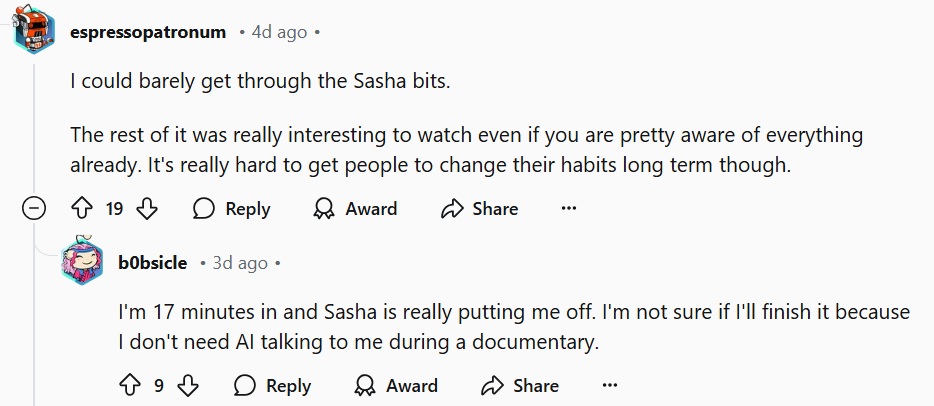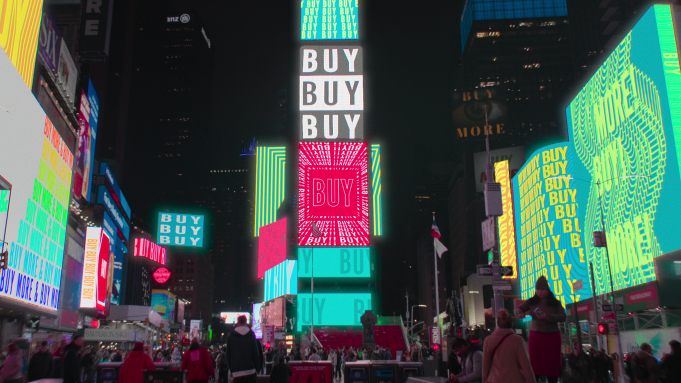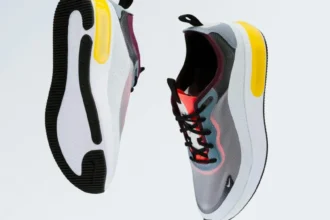The Dark Side of Click-to-Buy: Netflix’s Latest Documentary Exposes Our Shopping Addiction
In an era where next-day delivery and one-click shopping have become the norm, Netflix’s latest documentary “Buy Now: The Shopping Conspiracy” attempts to pull back the curtain on our collective consumption addiction.
While the documentary offers some startling statistics – like SHEIN’s mind-boggling production of 1.3 million items annually compared to Zara’s 36,000 – it leaves viewers with mixed feelings about its execution and scope.
The Numbers That Should Shock Us (But Don’t)
The documentary presents some sobering statistics about our consumption habits:
- The fashion industry produces 100 billion garments annually
- 13 million phones are discarded daily
- Only 10% of plastic marked as recyclable actually gets recycled
- Major retailers like Gap (12,000 items/year) and H&M (25,000 items/year) pale in comparison to fast-fashion giants
Yet, as many viewers noted, these numbers feel less shocking than they should. We’ve become desensitized to the scale of our consumption crisis, even as it accelerates.

Corporate Secrets Revealed (Sort Of)
The documentary features former industry insiders sharing insights into corporate practices:
- Amazon’s relentless optimization of every pixel to reduce “thinking time” before purchase
- The fashion industry’s sophisticated consumer psychology tactics
- Intentional product obsolescence, like the 18-month lifespan of earbuds
- Corporate practices of destroying unsold merchandise to protect brand value
However, many viewers felt these revelations lacked depth, possibly due to NDAs constraining what whistleblowers could share.
The Missing Voices
Perhaps the documentary’s most significant oversight is its limited coverage of those most impacted by our consumption habits. While it briefly touches on waste processing in Ghana, it fails to deeply explore:
- Working conditions in Global South manufacturing facilities
- The health impact on communities processing electronic and textile waste
- The economic dependencies created by Western consumption patterns
- The environmental consequences in countries serving as dumping grounds
Beyond “Buy Less”
While the documentary’s central message – consume less – is valid, it stops short of exploring systemic solutions:
- The need for reverse logistics in corporate planning
- Potential regulatory frameworks for planned obsolescence
- The role of social media and influencer culture in driving consumption
- Alternative economic models that don’t rely on perpetual growth
What Works (And What Doesn’t)
The documentary succeeds in:
- Making complex supply chain issues accessible
- Highlighting the false promise of recycling
- Demonstrating how corporate strategies manipulate consumer behavior

However, it falters with:
- Over-reliance on theatrical elements (particularly the widely-criticized “Sasha” AI narrative device)
- Lack of concrete solutions beyond individual action
- Limited exploration of environmental impact data
- Insufficient coverage of global perspectives
Note: Based on a redditor who claims to be involved on the documentary, no AI was used in the film:


Why It Still Matters
Despite its shortcomings, “Buy Now” serves an important purpose. For younger viewers and those new to conscious consumption, it provides an entry point to understanding these issues. For others, it serves as a reminder of how easily we fall back into consumption patterns, even when we know better.
Looking Forward
The documentary raises crucial questions about our future:
- Can we break free from the cycle of planned obsolescence?
- How do we balance economic growth with environmental sustainability?
- What responsibility do corporations bear for the entire lifecycle of their products?
- How can we ensure ethical production and disposal practices globally?
The Bottom Line
While “Buy Now: The Shopping Conspiracy” may not break new ground for those well-versed in sustainability issues, it effectively highlights how our shopping habits have been shaped by corporate interests.
The real conspiracy might not be in what the documentary reveals, but in what remains hidden: the full human and environmental cost of our consumption addiction, still waiting to be fully exposed.
For viewers inspired to act, the message is clear: conscious consumption isn’t just about buying less – it’s about understanding the true cost of every purchase we make.
Note: Statistical figures mentioned are based on the documentary’s claims as of 2024.
Soodo
Soodo | Shopify Website Development



